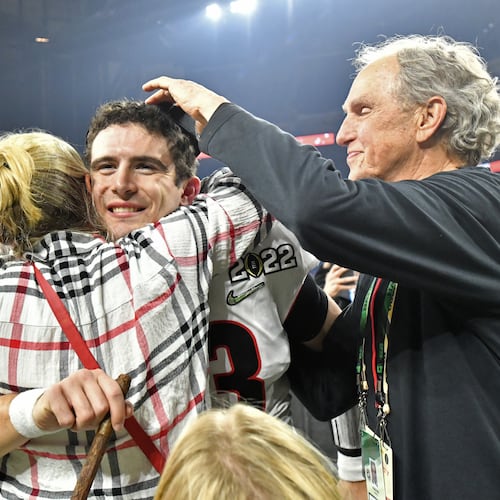The Braves need to – not want to, not hope to, but need to – win a postseason series in a borderline desperate kind of way.
Here we stress borderline. “I don’t sit and roll over in bed thinking about it,” Braves manager Brian Snitker said Tuesday.
“Not going to sacrifice a child to get it done.”
Very well then. Short of human sacrifice, winning any series by all lesser means necessary would be enough. Even if it’s a contrived best-two-out-of-three against a team that required a global pandemic to wrangle an invitation. Even a series with all the artificial ingredients of a Twinkie, like the one that begins at high noon Wednesday for the Braves versus Cincinnati.
It’s win-or-bust time again in Atlanta. And bust comes to town slopping over with experience and over-confidence.
The Braves, as has been mentioned, oh, almost hourly, have sat at the same postseason blackjack table for close to two decades now getting dealt a 16 and drawing a face card every hand. It’s getting old.
Here’s a painful reminder, only because they taught me in J-school that we’re supposed to provide some fact: The Braves haven’t won a playoff series since 2001. They have lost their past 10 postseason forays, dating to the ’01 National League Championship Series.
How long has it been? In that long ago Division Series victory over Houston, John Smoltz recorded two saves, Chipper Jones homered off Billy Wagner to nail down Game 1, Tom Glavine, as was his habit, won a 1-0 postseason decision in Game 2, emergency catcher Paul Bako was the unlikeliest hitting hero in Game 3 as the Braves swept the Astros in a best-of-five. You’ll find many of those key characters preserved as retired numbers across the face of Truist Park, not exactly fossils but still artifacts of a bygone era.
Back then Astros manager Larry Dierker summed up the series thusly, “They didn’t really give us anything. They played the tough baseball the Braves are noted for.” And we’ve waited 19 years to hear the echo of such words.
Now with the Braves' rebuild having reached the stage of touch-up work, it’s all about what happens in October. The relevance of this season is to be forged by what happens from here, even more so given that the regular season was so brief and inconclusive.
The Braves had myriad storylines through the scheduled part of 2020. Their best player endured a scary COVID-19 episode, their best pitcher chased a ground ball and was lost for the duration, for a while there Adam Duvall went deep more often than Kant, Marcell Ozuna earned every cent of his prorated pay, they scored 29 runs in a game and once again had more than their share of last at-bat fun. Yet, it’s all a washout – as ultimately meaningless as a pre-election poll – if, as the higher-seeded team, they don’t eliminate the Reds.
Not demanding they win a World Series to justify all the trouble they went through to play any kind of season in 2020. Just win one series. That seems a minimal and reasonable request.
Cincinnati poses a real problem because the Reds have the advantage in starting pitching. But unlike last year’s failed postseason run when Freddie Freeman’s injured elbow locked up, he is a thriving part of a formidable Braves lineup now.
“It’s been a great year physically after (his brush with) COVID. I haven’t had any aches or pains pretty much this whole season. I feel great, ready to roll, so hopefully it will be a different story this year,” Freeman said.
That should stand as a warning. It’s Cincinnati that should be troubled. Yet it’s Braves fans, fresh off watching St. Louis score 10 runs in the first inning of a decisive Game 5 last year, who own all the playoff PTSD.
Asked about the level of institutional frustration the Braves have built up while losing those past 10 playoff series, Snitker rightfully points out that there are no 19-year veterans on the roster who have lived every bad moment.
“Everybody’s talking about it, but they haven’t experienced it,” he said. “The guys who have been there for the last two years (and lost opening playoff series), they want to win one. I don’t think the history of it bothers any of those guys because they weren’t a part of it.”
All they can be now – all the need to be now – is part of the solution.
About the Author
The Latest
Featured


